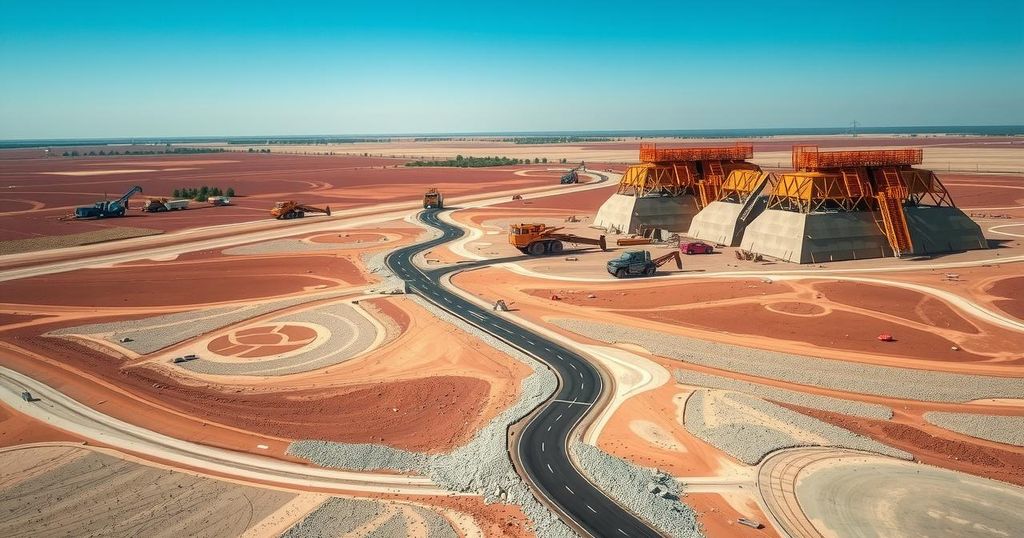Rafael Grossi, IAEA Director General, visited Niger to promote cooperation amid the country’s control over uranium production. This follows the military coup in 2023, which strained ties with France and Orano. Niger is a significant global uranium supplier and is exploring new partnerships, particularly with Russia and Iran, while maintaining a complex relationship with foreign mining companies.
On a recent visit to Niger, International Atomic Energy Agency (IAEA) Director General Rafael Grossi emphasized the need for increased collaboration with the nation, which is a significant uranium producer. Grossi acknowledged Niger’s status as a leading uranium supplier and highlighted the necessity of maintaining IAEA’s presence amidst the country’s political transformations.
Following the 2023 coup, Niger’s military leadership has sought tighter control over its natural resources, particularly uranium, causing tensions with France and the Orano nuclear group regarding its mining operations. Grossi’s meetings with Niger’s junta-appointed officials aimed to establish a framework for “deepening cooperation” in nuclear science and technology for development.
Grossi’s agenda included a visit to the Somair uranium mine, which is currently embroiled in disputes involving Orano, which owns a majority stake in several Nigerien subsidiaries. Niger has annulled Orano’s operating license at Imouraren, while Orano has asserted it has lost control over Somair due to governmental interference. The Cominak mine remains inactive since 2021.
Niger ranks as the seventh-largest uranium producer globally, contributing approximately five percent to the world’s supply. Since the coup, the junta has distanced itself from France and pursued new alliances with nations such as Russia and Iran. Nonetheless, Prime Minister Zeine clarified that no agreements have been made with Iran regarding uranium, particularly in light of international concerns surrounding Iran’s nuclear ambitions.
In conclusion, Rafael Grossi’s visit to Niger underscores the importance of the IAEA’s role in ensuring cooperation in uranium production amidst the country’s political shifts. Niger’s efforts to assert control over its resources have led to significant tensions with foreign entities, particularly France and Orano. As Niger seeks new partnerships, it remains crucial to monitor developments regarding its uranium governance and international relations.
Original Source: www.hindustantimes.com




